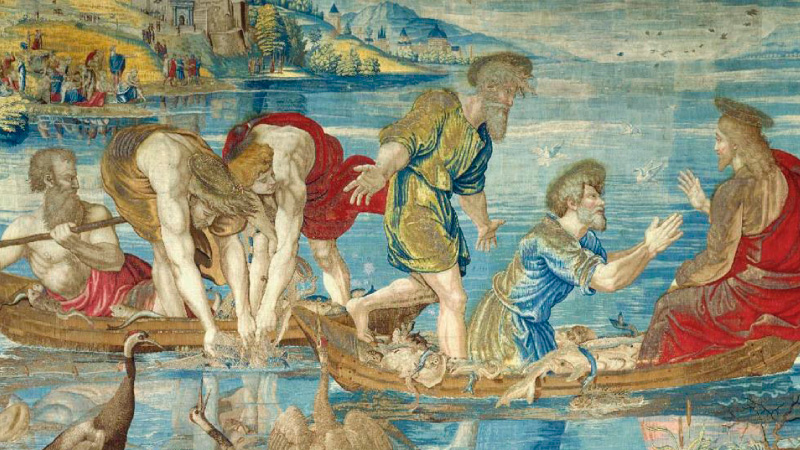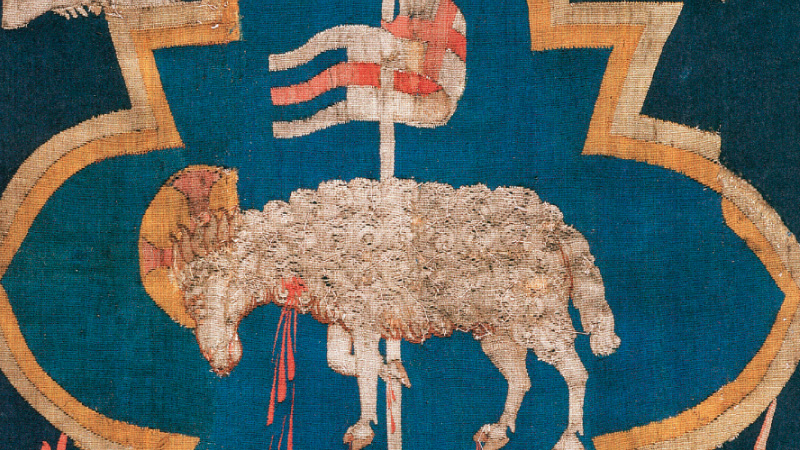“Its end is the kingdom of God, which has been begun by God Himself on earth, and which is to be further extended until it is brought to perfection by Him at the end of time, when Christ, our life, shall appear, and creation itself will be delivered from its slavery to corruption into the freedom of the glory of the sons of God.” (Lumen gentium, 9).
God’s entrance on the human scene, in Word and flesh, is history’s central event. Motivated by love, God responded to man’s condition, which required an extraordinary intervention, in order to re-establish order in creation. Above all, God’s Word and the theology of history facilitate the analysis of this situation. In their light, it is possible to practice a kind of lectio divina of humanity’s actions and to understand these actions from God’s perspective, not only for our own enlightenment but also for the enlightenment of others. This practice is essential, for we must know how to guide God’s people in interpreting the signs of the times, in the light of the Lord of time and history, who is history’s central figure and the source of all wisdom.
The Loss
History is both God’s word and man´s word. But the words or actions of God are teachings that precede those of man, or responses to them; whereas man’s words or actions only may be in harmony or in disharmony with those of God. Human history is always the history of salvation and of the kingdom that underlies the human stories that we weave each day.
One of the characteristics of the history we are building is hastiness, which is due to an excessive acceleration and to a profound disorder. The world is spinning like a top out of control, “reeling from a wine” (cf. Ps. 60:5) that produces an unbridled haste. Meanwhile, this ‘time of the absurd,’ which places human actions outside the bounds and harmony of nature, breaks all moral norms and stifles any spiritual seeds of growth. This results in the ‘dead works’ of which the Scripture speaks (Heb. 6:1; James 2:17) and in a life that corresponds neither to the law nor to the meaning of life. For the warning has been forgotten, “in the day that you eat of [this tree] you shall die” (cf. Gen. 2:17).
 «Despite this, we cast our nets once again, each one of us, each generation, with similar results. And each time we are told once again, “Don’t do things that way; that was not the right way; throw your nets in this new direction; throw them in a new way, in the way that I have taught you from the beginning; in other words, in the direction of Truth, of Freedom, and of Peace, which I am.” In fact, every human endeavor results in failure until we discover God standing on the shore.» “The Miraculous Draught of Fishes,” Raphael’s Tapestry. Vatican Museum.
«Despite this, we cast our nets once again, each one of us, each generation, with similar results. And each time we are told once again, “Don’t do things that way; that was not the right way; throw your nets in this new direction; throw them in a new way, in the way that I have taught you from the beginning; in other words, in the direction of Truth, of Freedom, and of Peace, which I am.” In fact, every human endeavor results in failure until we discover God standing on the shore.» “The Miraculous Draught of Fishes,” Raphael’s Tapestry. Vatican Museum.
Indeed, we have disposed of that which is most proper to man: the awareness of being made in the image of God, the presence of grace, holiness, truth, wisdom, beauty, honor, and the love of Christ, the Son of God and image of the perfect man, the Head of humanity. Rescuing this is the necessary condition for rediscovering our true human condition.
Within this context, we have erased the memory of the past or we have banished it as a time filled with shadows, but man’s turning his back on everything that has given life to past generations should create a great anguish, because today’s generation lives in a darkness far greater, despite all the glamour and scientific progress.
It is not man who establishes the measure of his own perfection or the meaning of natural law; in other words, the manner in which his physical and rational existence is ordered. We cannot recreate ourselves or our projects on a daily basis. We cannot deconstruct what God has created without us. We cannot prevent the Other, who is greater than us, from working in us. We may ignore or even disturb our human identity, but we cannot create in ourselves a novel and distinct identity, according to an image and likeness that has been imagined by us. Truth is not a question of will.
Reality stands on its own; it does not need anyone’s support. It belongs to every age and to every man, even when it is not accepted by anyone. However, man is seeking to establish a new law, for himself and for the world. It is the new utopia. Yet if man is God’s creation, this endeavor is futile. That is why we sometimes prefer to think of ourselves as a product of chance, for thus we may complete what has been left unfinished: forming man to realize his highest potential. We reach the point of believing that our word is worth more than God’s word, and that when all is said and done, we know more than He does. Thus, we allow ourselves to correct the divine works, words, and laws, and we substitute them with our own. We like our own ways better, and we believe that they are better suited to us. Indeed, we even fool ourselves into believing that God is not the measure of Truth, if He ever was. We have emptied the world of God’s presence and have filled it with all kinds of idols, and like in ancient times, we have said: These are your gods, O Israel!
We have built dreams and hopes that have not been realized upon these very convictions. In our own day, the most enticing of these dreams became the most devastating deception to aim at the masses: communism. In speaking of it, Benedict XVI wrote: “The idea was that we could turn stones into bread; instead our ‘aid’ has only given stones in place of bread.” (Jesus of Nazareth, p. 33)
Man loses the memory of himself when he loses the memory of God. Thus, he loses everything about himself. Despite that we may find in the present an unimaginable diversity of ideas about what man is, he cannot neither speak about himself nor identify himself in front of any reality: “These are waterless springs and mists driven by a storm” (2 Pet. 2:17).
The age of enlightenment has given way to the age of darkness, and the struggle of the Titans against God has caused an eclipse of the gods, and of man who has pseudo- divinized himself, pretending to supplant God. Therefore, despite the fact that the Truth has already been given in the Word, we find ourselves lost, wandering amid the present and future history of mankind, increasingly unable to deal with our history and to solve the enigmas that have developed over time. Therefore, “we have become like those over whom thou hast never ruled, like those who are not called by thy Name” (Is. 63:19). As in the original chaos, so also today the land is “empty and void” (Gen, 1:2), a desert to God and man.
Meanwhile, how do we justify the waste of time, of thought, and the squandering of energy that has occurred as a result of this work of destruction? Who will be responsible for the effects produced as a consequence of this confusion regarding the image of man and the moral ruin it has led to?
God at the horizon
We cannot get too far when we recklessly run away from God. It would seem evident that not only the spiritual and moral aspects of society, but also the global condition of humankind, demand a fundamental transformation. It seems clear that the order of things needs to be re-established, that the primacy of Truth must be restored, that the world must be renewed, and that man must return to his true nature. This being said, it is important to note that this transformation is neither man’s intention, nor is it within his reach under the present circumstances. The deposit of beliefs and of primordial values that nourished humanity throughout its history is below the minimum, and we have entered into a condition of quiet madness which consists of considering as a fact that humanity has finally reached the utopia towards which it has been journeying.
In the light of God’s Word, we have to understand that what really matters is man’s realization in the Word in conformity with the divine will. For we know that God’s plan is to unite all things in Christ, the Head. (cf. Eph. 1:10). Consequently, God’s hour must come, not necessarily at the end of time, but now, in order to restore the reign of God’s will to this present hour, when the sin of paradise is being repeated: the decision to replace God’s design with man’s.
At the end of this long journey in darkness, we, like the apostles after their failed fishing attempt, find ourselves tired and empty after an exhausting effort. Despite this, we cast our nets once again, each one of us, each generation, with similar results. And each time we are told once again, “Don’t do things that way; that was not the right way; throw your nets in this new direction; throw them in a new way, in the way that I have taught you from the beginning; in other words, in the direction of Truth, of Freedom, and of Peace, which I am.” In fact, every human endeavor results in failure until we discover God standing on the shore.
To flee from God is to walk toward nothingness and the absurd. This is what happens when the attitude denounced by the prophet Jeremiah is repeated, “But they did not listen to me, nor did they pay attention. They walked in the stubbornness of their evil hearts and turned their backs, not their faces, to me.” (Jer. 7:24). Man will be restless until he is reconciled with himself; that is, until he rediscovers his true image, with its original destiny, as he received it from the Creator.
The Council warned us: “as deformed by sin, the shape of this world will pass away; (cf. 1 Cor. 7:31) but we are taught that God is preparing a new dwelling place and a new earth where justice will abide … we are warned that it profits a man nothing if he gain the whole world and lose himself (cf. Lk. 9:25)” (Gaudium et Spes 39 §1, §2). St. Peter tells us that “according to his promise we wait for new heavens and a new earth in which righteousness dwells.” (2 Pet. 3:13)
Each day, God sets out to meet man in order to respond to that hope, but He may also reach out to man in order to journey again with him through the desert, as He did with the Israelites, in order to lead him to the freedom and the inheritance that awaits him.
God will again tear to pieces the false images we have fashioned of Him and of ourselves. He will come again to fulfill what was once announced by Isaiah: “I will lead the blind in a way that they know not, in paths that they have not known, I will guide them. I will turn the darkness before them into light, the rough places into level ground” (42:16).
In fact, God is on his way: “Now I will arise,” says the Lord, “now I will lift myself up; now I will be exalted” (Is 33:10). “Be silent before the Lord God! For the day of the Lord is at hand; the Lord has prepared a sacrifice and consecrated his guests” (Zeph. 1:7; 1:14). For now, once again, it is the hour of the Lord, an hour with its own rhythm and laws: the call to conversion, the offering of mercy, warning and punishment according to what each man deserves; the gift of the New Pact.
This language, which speaks to us in such categorical terms about the renewal that stands on the horizon, and about the magnitude of the crisis, allows us to imagine that, in the face of man’s lack of control over life’s events, something new that goes beyond human intervention is still possible: “Listen to me, my people, and give ear to me, my nation; for a law will go forth from me, and my justice as a light to the peoples. My deliverance draws near speedily…, and my arms will rule the peoples; the coastlands wait for me, and for my arm they hope” (Is. 51:4-5). For “thus says the Lord, the Redeemer of Israel and his Holy One, to one deeply despised, abhorred by the nations, the servant of rulers: ‘Kings shall see and arise; princes, and they shall prostrate themselves…’” (Is. 49: 7ff.). “You are my son, today I have begotten you. Ask of me, and I will make the nations your heritage, and the ends of the earth your possession” (Ps. 2:7-8).
Certainly it seems that the most significant event that has occurred in the present age is the silence of God, who is allowing man to speak his word, and allowing him to freely express his powers, his knowledge, and his liberty. Yet the Ancient of Days riding in the clouds is preparing the way. His footsteps can be heard, and His footprints can be seen, but we need ears that hear and eyes that see.
We carry within ourselves the sometimes inconsistent expectations of a new coming, of a new world, of a new creation. The One who is coming tell us, “Behold, I make all things new” (Rev. 21:5). However, before “building and planting” it is necessary “to pluck, to destroy, and to smite” (cf. Sir. 49:7) much of what we have built, since these structures have not been built by the Father. “The day of the Lord is close at hand” (Is. 13:22). Or as we read in Hebrews “For yet a little while, and the coming one shall come and shall not tarry” (Heb. 10:37), in order that the Scriptures might be fulfilled. And again, elsewhere in Scripture it is written, “They shall look on him whom they have pierced” (Jn. 19:37).
God will again reveal His face to humanity, since he is the Head of the new humanity, the “Everlasting Father,” (Is. 9:6); for it is necessary that Christ return to dwell among us as the Light and Law of the world.
During Advent, the liturgy invites us to turn our gaze toward the One who comes, “Watching from afar I see the power of God advancing; let us go out to meet Him. Rise up, lift up your heads, your redemption is near at hand.” For behold, “I stand at the door and knock” (cf. Rev 3:20). To the “King who comes, to the Lord who draws near, come, let us adore Him.”



